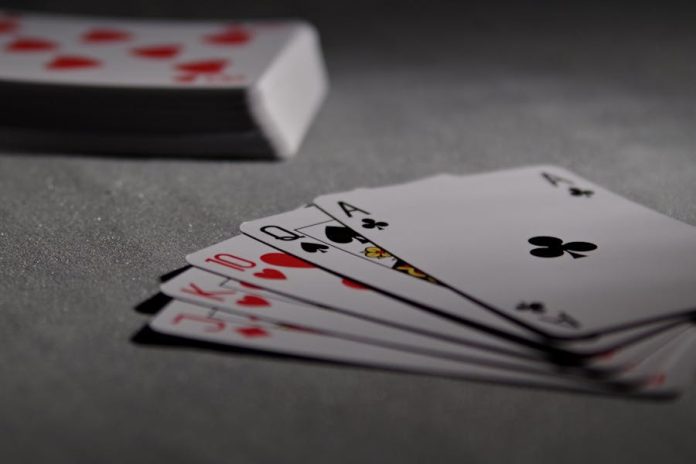
Korean dramas, or K-dramas, have won global fans with their emotional depth and gripping stories. While romance and revenge are staples, gambling is a rising theme in series like Tazza, Liar Game, and Squid Game. These shows use gambling to explore ambition, desperation, and the price of power. High-stakes games reveal character flaws, moral dilemmas, and social commentary, especially in a society where risk often mirrors real-life struggles.
The tension and unpredictability of gambling fit perfectly into the dramatic K-drama style, keeping viewers hooked. As interest grows, the appeal of New 200 free chip bonuses from online platforms reflects the same thrill people see on screen. These storylines resonate because they blend strategy, chance, and survival, turning games of risk into powerful storytelling tools.
Gambling as a Tool for Character Development
In many K-dramas, gambling isn’t just about winning money—it’s about revealing what people will risk when pushed to the edge. Characters involved in gambling often exist in high-pressure environments that force them to make difficult moral choices. These situations are crafted to expose a character’s vulnerabilities or hidden strengths.
Take the series Tazza for example, which is inspired by a popular manhwa and follows the story of a young man who becomes involved in Korea’s underground gambling scene. Through his journey, viewers witness a transformation from naïve youth to cunning strategist. Gambling here is used as a crucible for growth and personal evolution. Similarly, in dramas like Liar Game, the tension created by mental showdowns in deceptive games reveals not only intellect but also each character’s philosophy toward trust, betrayal, and survival. Key elements portrayed in gambling-centric K-dramas include:
- Psychological tension that drives the plot forward
- Character development through high-stakes choices
- Moral dilemmas involving loyalty, greed, and fear
- Symbolism of risk as a metaphor for life decisions
By embedding gambling deeply into a character’s arc, these K-dramas allow for multidimensional storytelling. The psychological strain and stakes involved make character motivations more compelling. Gambling becomes less about cards or dice and more about how much a person is willing to risk for a perceived future, a sense of justice, or sheer revenge. This layered narrative style keeps audiences emotionally invested, even when the action is centered around something as simple as a coin toss.
Cultural Reflections: What Gambling Symbolizes in Korean Society
Gambling is illegal in South Korea for its citizens in most forms, which adds a layer of tension and taboo when it appears in entertainment. The K-dramas that explore gambling themes often do so not merely for excitement, but to offer subtle commentary on Korean societal issues such as inequality, corruption, or the allure of fast success.
Many gambling-focused dramas mirror the struggles faced by those on the margins of society. Characters are often debt-ridden, ostracized, or burdened by family expectations, making gambling appear as a last resort rather than a mere thrill-seeking activity. This framing allows writers to explore the darker side of ambition and the systemic obstacles that push people into desperate choices. In dramas like The Great Seer or Vagabond, gambling isn’t glamorized—it’s portrayed as dangerous, addictive, and capable of unraveling lives.
Moreover, the way these dramas use gambling reflects a broader discomfort with unchecked capitalism. The risky world of underground gambling often symbolizes the volatile nature of financial success in a hyper-competitive society. Winning may offer temporary relief, but the price is usually steep—morally or emotionally. As such, gambling in K-dramas becomes a metaphor for survival in a society where opportunity and desperation walk a fine line.
This cultural backdrop gives gambling narratives a uniquely Korean flavor. While the games themselves may seem familiar to international audiences, the societal commentary layered beneath the surface makes them especially resonant for viewers who understand the local context.
High-Stakes Drama: Creating Suspense Through Psychological Games
Gambling in K-dramas often shifts away from traditional casino scenes and into the realm of psychological warfare. The stakes are rarely just monetary; they’re emotional, ethical, and existential. This form of storytelling transforms a game into a test of mental endurance and moral boundaries.
In the critically acclaimed Liar Game, contestants are thrown into games where manipulation, deception, and logic determine the outcome. The viewers become just as anxious as the players, second-guessing strategies and unraveling lies alongside them. The format mimics real-life gambling but magnifies the psychological complexity to cinematic levels. Every decision becomes a potential downfall, every alliance a double-edged sword.
The suspense in such series doesn’t rely solely on dramatic music or fast editing. It’s built through layered storytelling and an acute understanding of human behavior. When a character bluffs, the audience isn’t just wondering whether the bet will succeed—they’re dissecting what that choice reveals about the character’s mind. This emphasis on intellect and emotional resilience makes gambling-centric K-dramas more than just thrill rides; they’re cerebral puzzles.
Even in more action-oriented series like Squid Game, gambling takes on a deadly twist. The games may appear simple, but every round becomes a psychological battle. Choices made under pressure highlight who people truly are when survival is on the line. These high-stakes scenarios push narrative tension to the maximum, allowing gambling to function as both a plot device and a philosophical dilemma.

